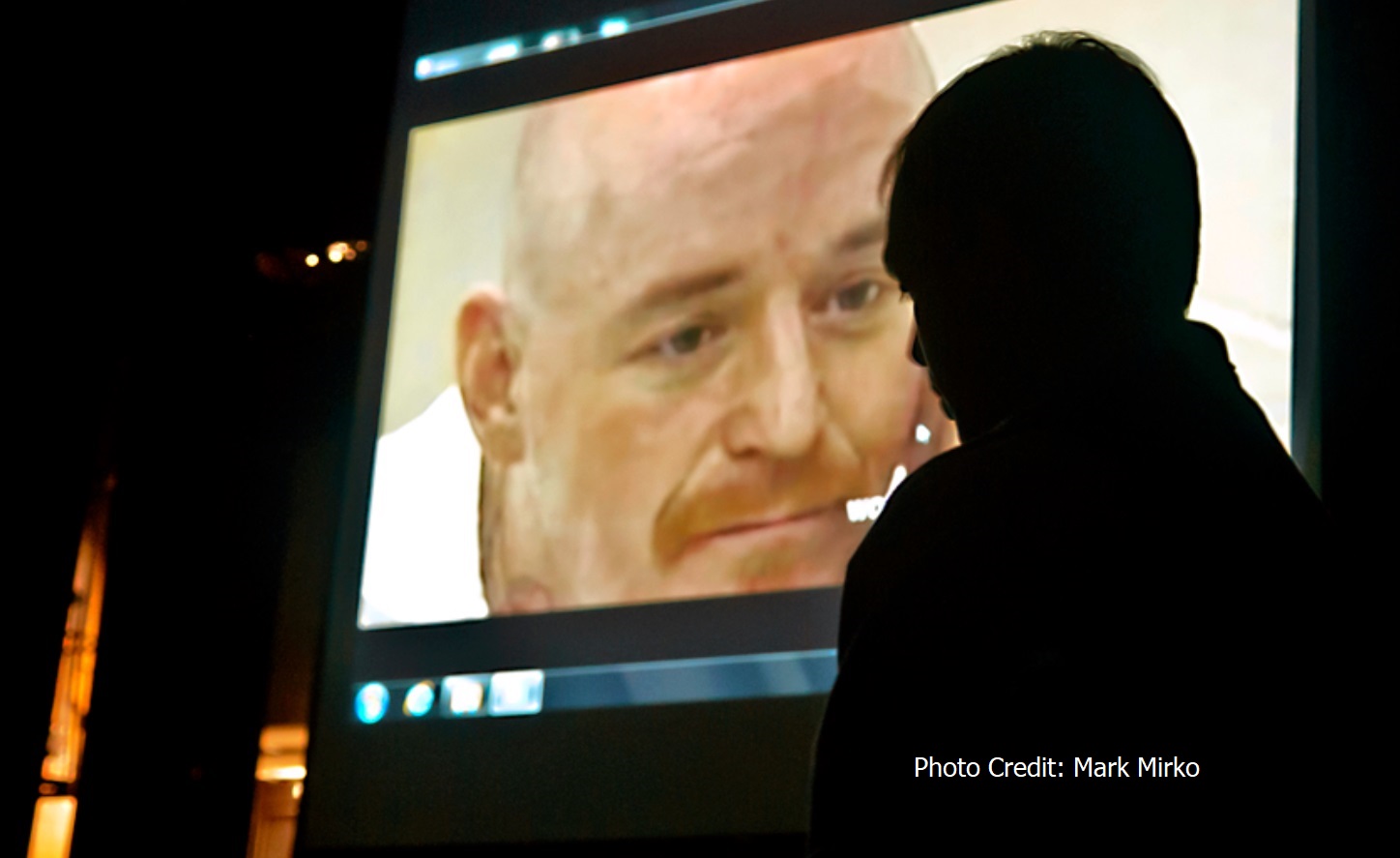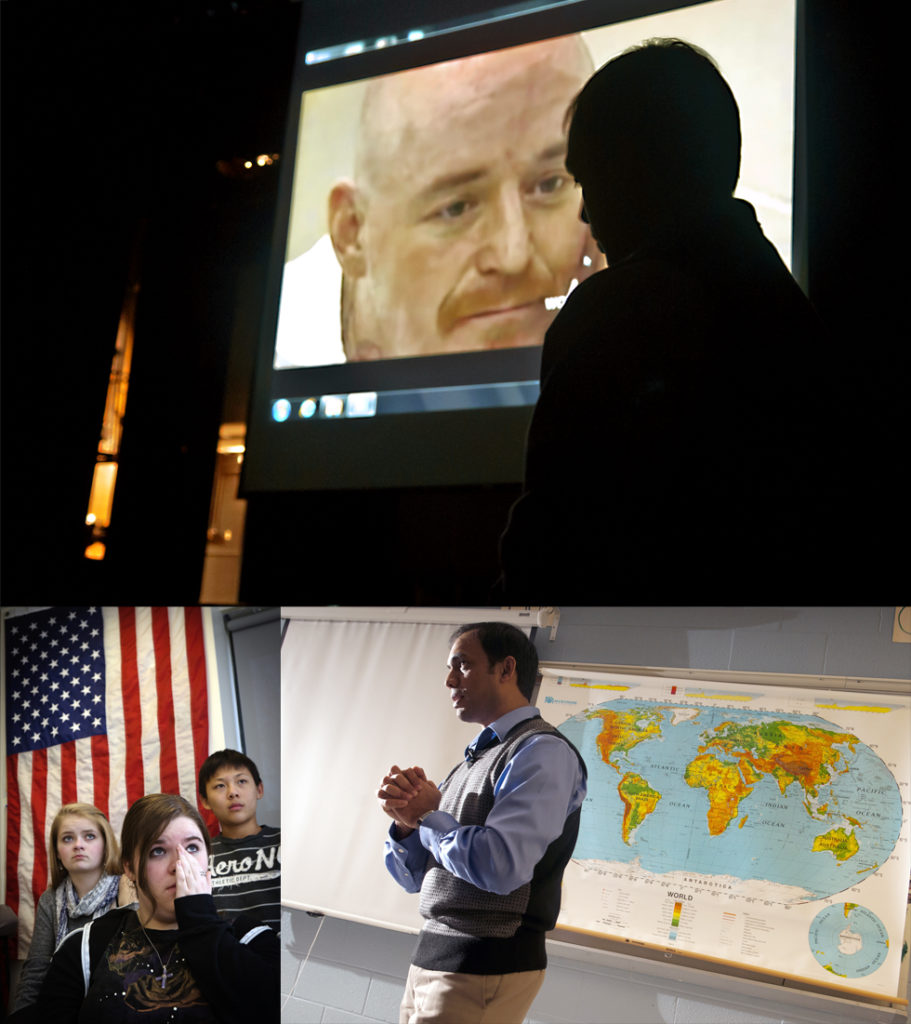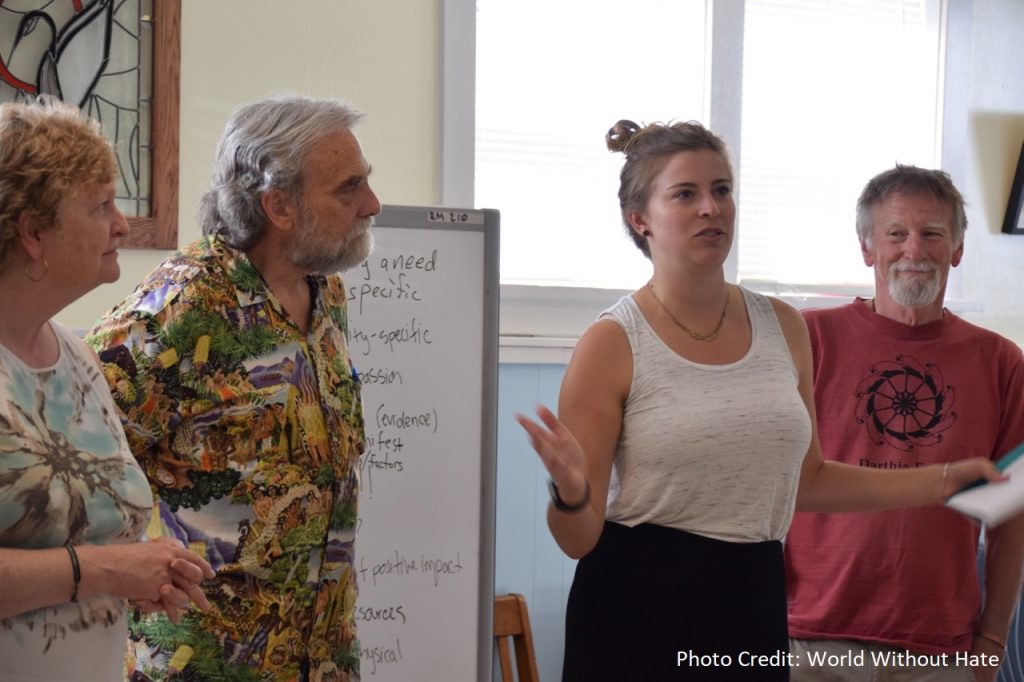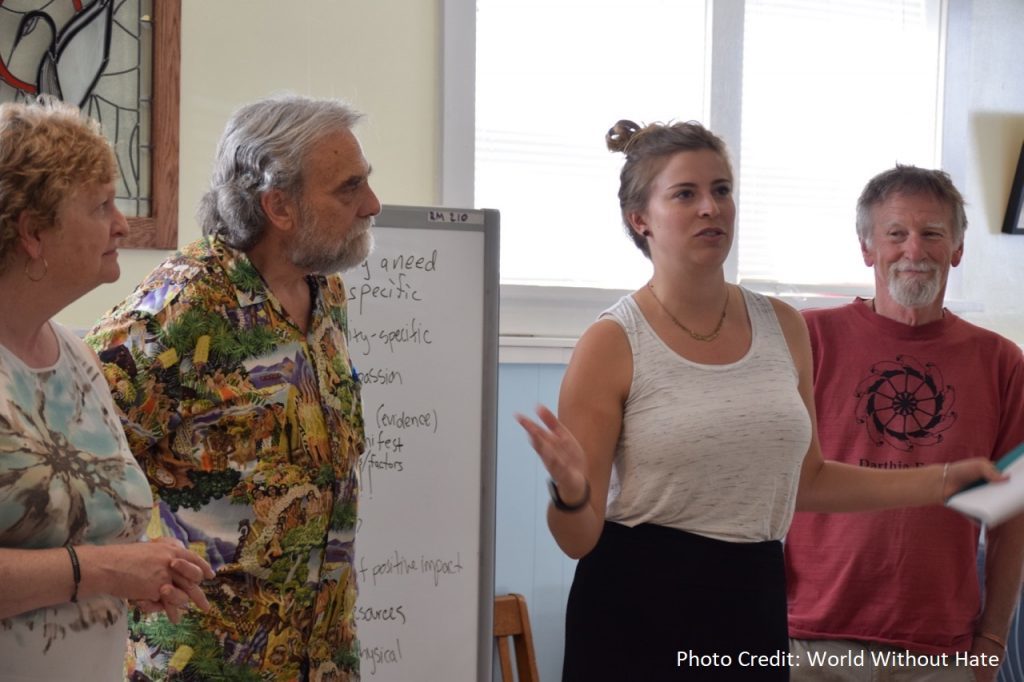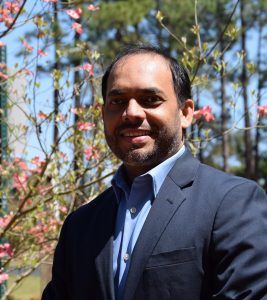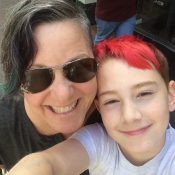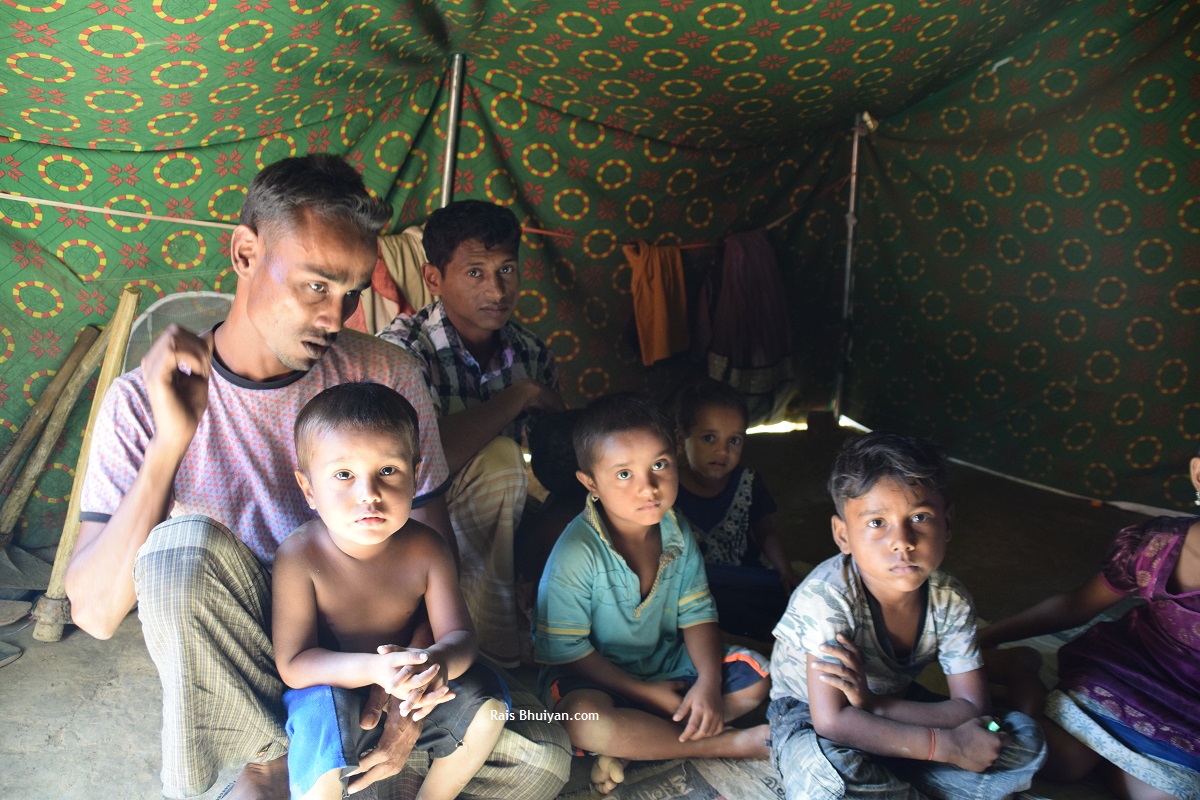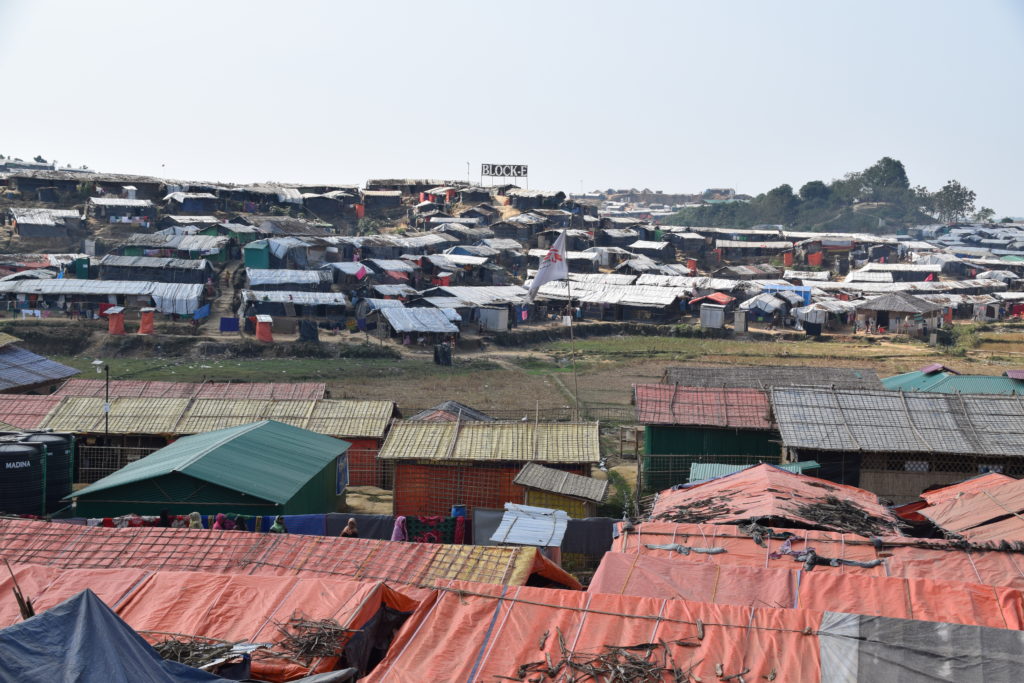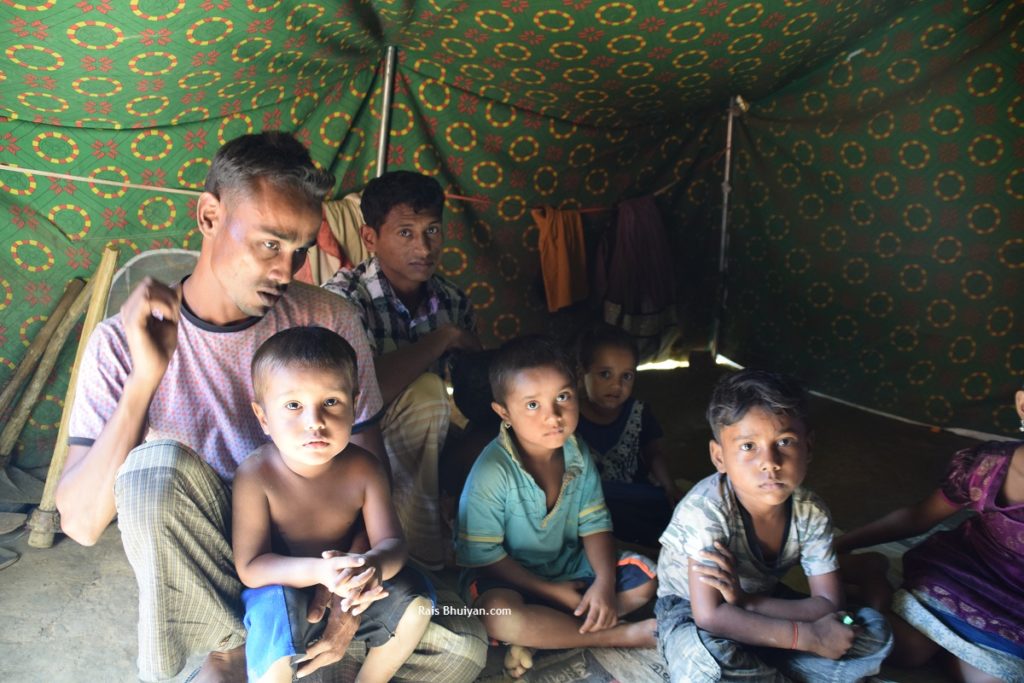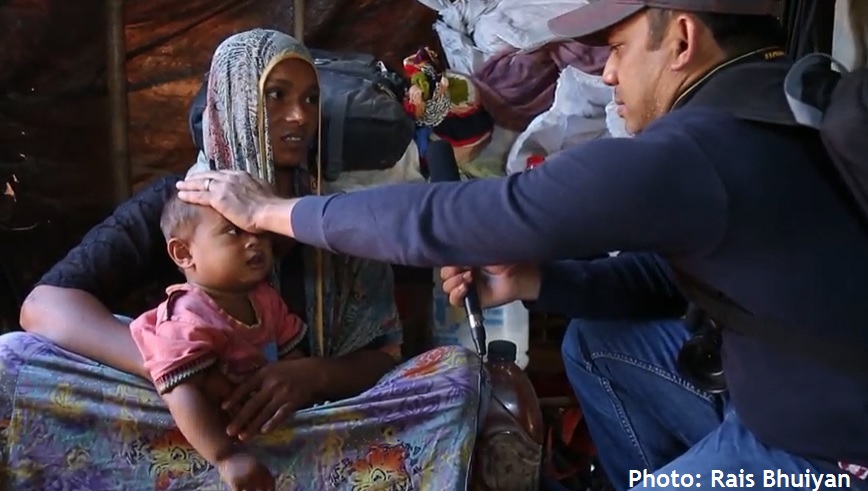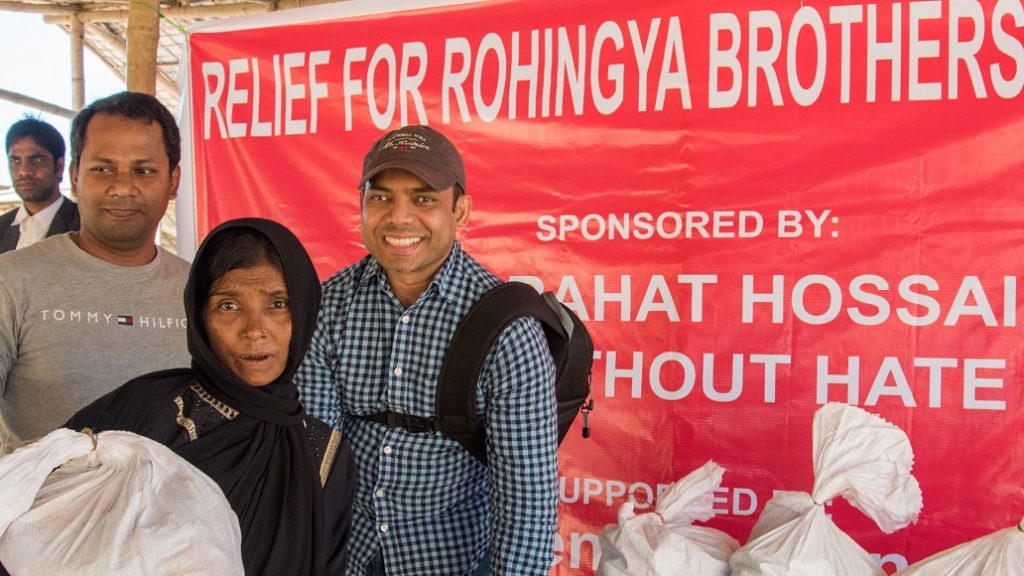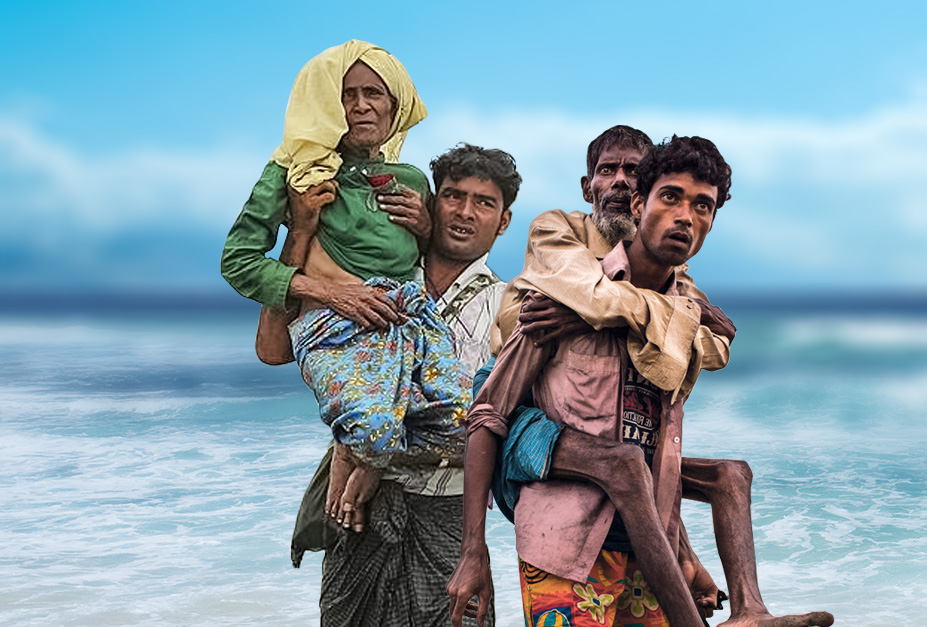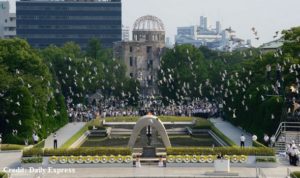A 9/11 hate crime survivor meets Rohingya refugees.
In December, I visited the largest and densest refugee camp in the
world. In Cox’s Bazar, hundreds of thousands of oppressed Rohingya men,
women, and children, the “lucky” ones who narrowly escaped Myanmar with
their lives, are now suffering in this camp.
Visiting this camp was a life altering experience. Thousands of
sickly, terrified, traumatized, and destitute Rohingya people populate
an absurdly small area in southeast Bangladesh. I bore witness to their
plight.
As a relief worker, I sat down with refugee families in their tiny,
tarp shacks and listened to their heart-breaking and courageous stories.
I saw thousands of children under the age of 10, many playing in dirt
with makeshift toys made of trash. No food. No medicine. No home. No
school. No future. The mercy of others is their only chance at
survival.
The unlucky ones
Imagine if they were your own children or loved ones. How would you
feel? These children have done nothing to deserve this life. The reason
for their fate is the accident of their birth: They happened to be born
into a Rohingya family in Myanmar.
They survived genocide, only to walk hundreds of miles, day and
night, through hills, paddy fields, and streams, the threat of violence
looming with each fragile step toward another uncertain day of
existence.
Mohammed Sahel is just six and his sister, Asma bibi, only five.
They, along with three other younger children, sat to play with me on
the dirt floor of their family’s small tent.
How could these innocent, young children, along with many thousands
like them, walk day and night, hundreds of miles on their tiny feet,
falling asleep anywhere on their painstaking journey whenever their
little bodies couldn’t walk another step?
But, this pain was far better than the alternative — being burned
alive, beaten or shot in the head by one of the most ruthless militaries
in the world, led by some of the world’s most morally corrupt civil and
military leaders.
Here I am, visiting with
refugee toddlers who have witnessed their loved ones being brutally
murdered, their homes and land decimated, and in many cases, family
members fighting to survive after severe wounds and infections from
being tortured and beaten
I asked them what they ate in the camp and they told me a meagre
portion of rice and lentils, and if lucky, maybe they’d get a bit of
curry with green beans and tomatoes.
As I continued to walk through the camp, I saw thousands more children, many naked and severely malnourished.
These children, many only two or three years old, went through the
same kinds of trauma that Sahel and Asma bibi did. No playdates or
soccer practices or birthday parties for these youngsters, just the
punishingly brutal reality of being a poor refugee.
A few years ago, I was invited to speak to an elementary school class
in the US and was asked to avoid using such words as “gun,” “kill,” or
“blood.” And now here I am, visiting with refugee toddlers who have
witnessed their loved ones being brutally murdered, their homes and land
decimated, and in many cases, family members fighting to survive after
severe wounds and infections from being tortured and beaten.
Accounts of sorrow
I asked Sahel’s mother how she and her husband managed to escape with
their five children and two elderly parents. She broke down,
exclaiming: “Only God knows how we walked 13 days through the mud,
jungle, up hills, and through streams.”
Where did you sleep and what did you eat, I asked? “Whenever we felt
we couldn’t walk anymore, we lied down with the kids, and it was
extremely terrible at night because of the fear of getting attacked or
shot.
It was a horrible experience, the kids cried all the time for food
and from lack of rest, but we had to keep walking to get to the border,”
she explained.
I touched the forehead of her one-year-old son, who was sitting on her lap, suffering from an intensely high fever.
I asked her how life was back home, in Myanmar. She said it was OK,
despite the long- term, systematic suppression by their government. At
least they had a house, a small boat to catch fish, and land to
cultivate. But now, everything was gone, except their lives.
And arriving at this refugee camp meant that they could at least
sleep at night, without the fear of getting killed or burned alive in
their own home. While she spoke, I could see the immense horror and
sadness on her face for all she had lost, for all she had endured.
But, at the same time, there was a small spark of joy: She and her
family could sleep at night, even on the unforgivingly hard dirt floor,
without a mattress or blankets, but without the fear of being killed in
the middle of the night.
* * *
There were thousands of tents near Sahel’s, with a minuscule distance
of a couple of feet separating one from the next, and a few make-shift
toilets nearby, servicing hundreds of families. Livings conditions were
unhealthy, unsanitary, and unstable at the camp.
Most of the shacks sit on the slope of hills once full of trees.
Bangladesh has a subtropical monsoon climate, making it inevitable for
disastrous, heavy rains, leading to mudslides — to plague the region. In
such a dense refugee camp, such a storm would be catastrophic.
On top of this, powerful cyclones and other natural disasters are
common. These refugees have faced more than enough severe trauma, and a
cyclone or catastrophic mudslides would inevitably only make their
plight worse.
Perhaps the irony, as cruel and shocking as it is, is that Myanmar’s
leader is a Noble Peace Laureate. Aung Sun Suu Kyi is calling for
anything but peace and life. Instead, it seems, she is cynically
perpetuating the destruction and devastation being faced by the
Rohingya.
A UN resolution called on the Myanmar government to allow refugee
access for aid workers, ensuring the safe return of all refugees, while
granting full Myanmar citizenship to the Rohingyas.
But sadly, this humane and peaceful resolution was vehemently
rejected by China, Russia, Cambodia, Laos, the Philippines, and Vietnam,
as well as Myanmar.
The same countries opposing safeguarding the Rohingya’s basic human
rights are, at the same time, fighting for their own citizens’ freedom
from discrimination and torture in other countries.
For example, Philippine President, Rodrigo Duterte, warned that he
may impose a permanent ban on workers to Kuwait, and withdraw his
countrymen, if another Filipino domestic helper is attacked or dies.
Peaceful countries, like Japan, and the largest democracy of them
all, India, remain silent. Neither voted for the resolution. Perhaps, as
Dr Martin Luther King, Jr said, “the ultimate tragedy is not the
oppression and cruelty by the bad people but the silence over that by
the good people.”
Deafening silence and selfish acts never solve anything; rather, they
create more hate, violence, intolerance, and open the path of
extremism.
Polar opposites
Before I left Sahel and Asma bibi’s tent, I asked them, and their
parents, what they most wanted. “All we want to do is go home and
rebuild our lives,” they told me.
Overwhelmingly, this was the same massage refugees gave me when I asked this question.
Everyone I spoke to told me they were very grateful for the
incredible hospitality of the Bangladeshi people, especially its
military.
Both countries are led by
women, one has blood on her hands despite being the Nobel Peace
Laureate, while the other practices the same mercy, kindness, and
compassion Aung Sung Suu Kyi once preached
Two military forces, from two neighbouring countries, Myanmar and
Bangladesh; one is morally corrupted and guilty of genocide; and the
other is praised worldwide for saving humanity, serving as the number
one UN peacekeeping force in the world.
Both countries are led by women, one has blood on her hands despite
being the Nobel Peace Laureate, while the other practices the same
mercy, kindness, and compassion Aung Sung Suu Kyi once preached during
her struggle to free the Myanmar people.
Despite the miserable conditions of the Rohingya’s daily life, I saw
the unforgettable smiles on their faces while receiving the variety of
relief goods from us. The refugees asked me to share their stories and
plea to the international community to help end their plight.
I vowed to not only amplify their voices, but reach out to United
Nations, world leaders, religious and secular institutions, and
individuals of conscience to hold them morally accountable to work
together to eradicate this senseless human suffering by implementing a
five point solution:
- All restrictions on humanitarian aid to the Rohingya should be
lifted and access for journalists and human rights monitors should be
permitted.
- An independent investigation should bring all responsible parties to justice for crimes against humanity.
- A safety zone for the Rohingya people should be declared, and UN peacekeeping forces must be deployed to protect them.
- Rohingya refugees should be helped in their migration back from
neighbouring countries with necessary support to rebuild their homes and
lives.
- The Rohingya should be recognized as a protected ethnic minority
group, with guarantees of their basic human rights, including
citizenship and voting rights.
It’s our moral duty as enlightened citizens of the world to help
these destitute men, women, and children to lead a dignified human life.
We must remember that no one chose to be a refugee.
Whatever the Myanmar military, the perpetrator here, and the head of
the state Aung San Suu Kyi want for themselves and their families are
the same things the Rohingya want for themselves and their families:
Peace, opportunity, happiness, and love.
We must redouble our effort to amplify the message that rings out
from genocides and senseless oppressions throughout human history:
“Never again.”
Rais Bhuiyan, a post 9/11 hate crime survivor is the founder of
World Without Hate, is an international speaker and the subject of The
True American: Murder and Mercy in Texas.
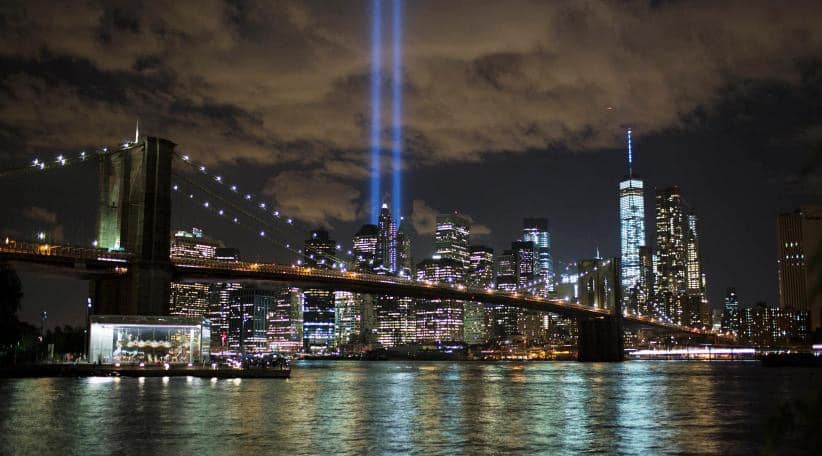 Every anniversary, if I sit still long enough, I can hear the short, chaotic breaths I was gasping, taking me back to third avenue as I ran north with thousands and thousands of others. Not a single taxi, bus, or moving car to be seen. Though the beating of my heart has quieted some, I still catch myself, immediately and unconsciously turning towards the sky when a jet engine seems all too close. I remember the smell. And the ash as it began to collect on my apartment’s windowsill.
Every anniversary, if I sit still long enough, I can hear the short, chaotic breaths I was gasping, taking me back to third avenue as I ran north with thousands and thousands of others. Not a single taxi, bus, or moving car to be seen. Though the beating of my heart has quieted some, I still catch myself, immediately and unconsciously turning towards the sky when a jet engine seems all too close. I remember the smell. And the ash as it began to collect on my apartment’s windowsill.
